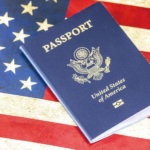In a chilling moment captured on security camera footage, a calculated and professional assassination unfolded in the heart of Bangkok’s historic royal quarter. The target was Lim Kimya, a 73-year-old former parliamentarian from Cambodia’s opposition party, the Cambodia National Rescue Party (CNRP). His death raises serious questions about the growing trend of political repression in the region, particularly regarding Cambodia’s ongoing repression of dissent and Thailand’s role in harbouring or facilitating such acts. The assassination of Lim Kimya serves as a stark reminder of the severity of political repression in Southeast Asia and the lengths to which governments will go to silence their opposition.
What Happened on the Day of the Assassination?
On the morning of the attack, a man, identifiable from the security camera footage, calmly parked his motorbike near a well-known temple in the royal quarter. He removed his helmet, making his face visible, before crossing the road with purpose. “This wasn’t a spur-of-the-moment decision,” said one local witness. “It was a well-thought-out, deliberate act.”
Just moments later, the sound of gunfire echoed through the streets. Lim Kimya, who had only recently arrived in Bangkok with his wife from Cambodia, was struck by two bullets to the chest and fell to the ground. Despite efforts by a police officer to revive him, Lim Kimya was pronounced dead at the scene. This political assassination highlights the extreme levels of political repression faced by those who dare to challenge the established regimes.
Who Was Lim Kimya, and Why Was He Targeted?
Lim Kimya’s death shocked many, especially those who knew him as a brave and independent-minded figure in Cambodia’s political landscape. “He was courageous, with an independent mind,” said Monovithya Kem, daughter of the CNRP leader Kem Sokha. “No one but the Cambodian state would have wanted to kill him.”
Although Lim Kimya was dual Cambodian and French, he remained in Cambodia even after the CNRP was banned in 2017. The party, amalgamating two earlier opposition groups, had been close to defeating Hun Sen’s ruling party in the 2013 elections. This close call led to the government accusing the CNRP of treason, subsequently shutting it down, and harassing its members with legal actions. The growing pattern of political repression in Cambodia left Lim Kimya vulnerable to such an attack.
What is the Political Climate in Cambodia?
Under the long-standing rule of Prime Minister Hun Sen, who transferred power to his son, Hun Manet, in 2023, political freedoms have become increasingly restricted. “The country has moved from a semblance of political pluralism to an almost complete closure of space for dissent,” said a Cambodian political analyst.
Kem Sokha, Lim Kimya’s colleague and leader of the CNRP, had been subjected to years of house arrest and was sentenced to 27 years in prison in 2023. The increasing repression of opposition figures has not deterred the government’s crackdown, which continues to extend its reach even beyond Cambodia’s borders. This relentless political repression reflects a broader trend in the region, one that punishes dissent and stifles opposition.
Who Is the Killer, and How Was He Identified?
Thai authorities have already identified the assassin from the footage as an ex-Thai navy officer who now works as a motorbike taxi driver. The rapid identification of the killer suggests that apprehending him will not be difficult. However, questions remain about whether a full investigation will take place.
In recent years, Thailand has found itself at the centre of transnational repression, with several dissidents from neighbouring countries fleeing to the kingdom, only to be sent back to face persecution. “The exchange of dissidents for political and economic favors has become a troubling norm,” said Phil Robertson, Director of the Asia Human Rights and Labour Advocates in Thailand. “This must be stopped.”
What Is the Growing Trend of Transnational Repression in Southeast Asia?
Human rights groups have long warned of the dangerous trend of transnational repression in Southeast Asia, particularly in the Mekong sub-region. This unwritten agreement between neighbouring countries has allowed security forces to target and silence dissidents who cross borders in search of safety.
Just last year, Thailand deported six Cambodian dissidents, along with a young child, to Cambodia, where they were immediately imprisoned. Despite being recognized by the United Nations as refugees, the Thai government has remained complicit in their return. Earlier in 2023, Thailand also sent a Vietnamese Montagnard activist back to Vietnam, where he faced detention and abuse.
“Transnational repression is not just about the persecution of individuals; it’s about silencing political opposition in multiple countries, and it’s something the international community must address,” said Robertson. Thailand’s role in this context of broader political repression cannot be ignored.
What Role Does Thailand Play in Political Repression?
Thailand, despite its efforts to position itself as a defender of human rights on the global stage, has found itself caught in the web of transnational repression. Human rights groups argue that the country has become complicit in this troubling pattern. “Thailand has presided over a de facto ‘swap arrangement’,” said Robertson. “Dissidents and refugees are traded for political and economic favours with neighbouring countries.”
This disturbing reality extends beyond Cambodia. Thai anti-monarchy activists who fled to Laos have also been abducted, and in 2020, Wanchalerm Satsaksit, a young Thai activist, was kidnapped from Cambodia, sparking international outrage. Despite pleas for an investigation, the Cambodian authorities have done little to uncover the truth, and they officially closed the case last year.
What Has Changed Under Hun Manet’s Rule in Cambodia?
When Hun Manet, the son of Hun Sen, took office as Cambodia’s prime minister, many speculated that he would adopt a softer, more reformist approach. However, his administration has continued many of his father’s repressive policies, with opposition figures still being jailed and persecuted.
“His government continues to silence dissenting voices, while the space for meaningful political engagement has shrunk significantly,” said a Cambodia-based political analyst. “Opposition leaders remain imprisoned, and those who dare to challenge the regime are often subjected to harsh punishment.”
Hun Sen, though semi-retired, still holds significant influence over his son’s government. He recently called for a new law to brand anyone attempting to replace him as a terrorist, signalling his intent to ensure his family’s continued hold on power.
What is the International Community’s Response to Lim Kimya’s Assassination?
As the assassination of Lim Kimya continues to reverberate through the region, there is growing international concern about Thailand’s role in allowing such acts of violence to unfold on its soil. Thailand’s recent seat on the UN Human Rights Council has raised questions about its commitment to human rights and the rule of law.
“Thailand must show the world that it is serious about justice and human rights,” said a human rights advocate. “The brutal assassination of Lim Kimya demands a full investigation, and the perpetrators must be held accountable. Anything less would send the message that political violence is tolerated.”
As the investigation into Lim Kimya’s murder continues, the world will be watching closely to see whether Thailand will uphold its international commitments and take meaningful action against those responsible for this brazen act of political repression.




